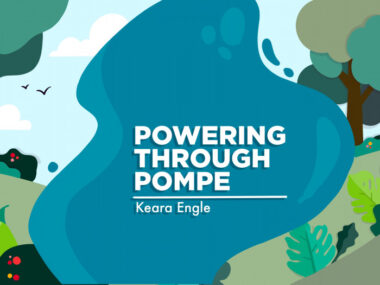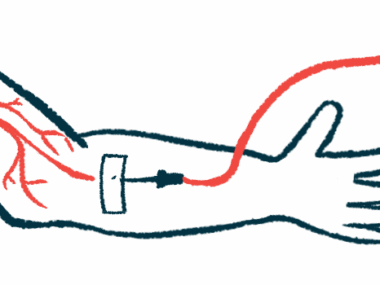How we’re constantly learning about the Pompe diet and exercise
As parents of a child with Pompe disease, every day brings new lessons
Written by |

Our 6-year-old child, Geno, who was diagnosed with Pompe disease via newborn screening, has for years told classmates he can’t eat candy. During snack time, at friends’ birthday parties, or holidays like Halloween, sometimes he’ll say he’s allergic to it. Luckily, we have a great group of kids around us who respond understandingly.
At some point years before, we started offering comparisons so that he wouldn’t feel left out, such as “Rebecca can’t eat peanuts” or “Brian shouldn’t eat eggs.”
Pompe disease is a rare genetic disorder in which a complex sugar molecule called glycogen builds up in body cells because the body is missing or deficient in the enzyme needed to break it down. Glycogen is a stored form of sugar used for energy, and without it, the sugar accumulates in tissues, and swelling causes progressive weakness across a variety of muscles.
For us, Pompe disease is a day-by-day, year-by-year learning experience regarding how things will play out. We’re still slowly figuring out the intricacies of the recommended Pompe diet and cardiovascular exercise.
The learning curve
Geno has been good so far with avoiding candy and processed sugars, somehow, and for years, we felt like we’d done a good job of following the diet recommended for people with Pompe disease: higher protein, lower carbs, and more veggies. Then I realized I wasn’t actually that knowledgeable about which foods were high in carbs, such as bread and corn.
So we moderated the bread and corn servings and added more shrimp and broccoli to his meals. But regulating his diet to that degree became increasingly challenging with cafeteria food and during weekend events and birthday parties.
Is it good enough to avoid sweets, even if we’re not doing as well at avoiding high-carb foods and snacks? I still ponder this daily.
We’ve also been learning about cardio exercise and Pompe disease. One common tool is the six-minute walk test (6MWT). This assessment for Pompe patients has them walk as best they can for six minutes to determine their functional capacity and muscle endurance. There are other shorter tests as mobility becomes more challenged, but the 6MWT is a baseline we hear about a lot.
When Geno was 4, I remember our therapist saying that normally, a child his age should be able to walk at least a mile. That seemed like a lot in my mind, but I didn’t think too much about it at that point, because 4-year-olds are still riding around in strollers. Then at some point, the parents of other kids Geno’s age stopped using strollers, and the children were able to walk for hours at shopping malls and amusement parks.
Sometimes Geno’s cardio activity increases when he’s at the playground or a party because his adrenaline is up. Being born with Pompe disease means Geno doesn’t know what normal cardio feels like. I wonder how much heavier his legs feel than those of other kids, and what it feels like when they tire out faster.
Along our Pompe journey, we’ve met some incredible people in this community. Every time we do, a special bond forms of mutual understanding, care, uncertainty, inspiration, and then more care. It’s a lifelong journey for us and everyone like us. Each step forward, we ponder and learn what’s next. I hope through this column we can track our path and learn from our community’s stories along the way.
Note: Pompe Disease News is strictly a news and information website about the disease. It does not provide medical advice, diagnosis, or treatment. This content is not intended to be a substitute for professional medical advice, diagnosis, or treatment. Always seek the advice of your physician or other qualified health provider with any questions you may have regarding a medical condition. Never disregard professional medical advice or delay in seeking it because of something you have read on this website. The opinions expressed in this column are not those of Pompe Disease News or its parent company, Bionews, and are intended to spark discussion about issues pertaining to Pompe disease.



Leave a comment
Fill in the required fields to post. Your email address will not be published.